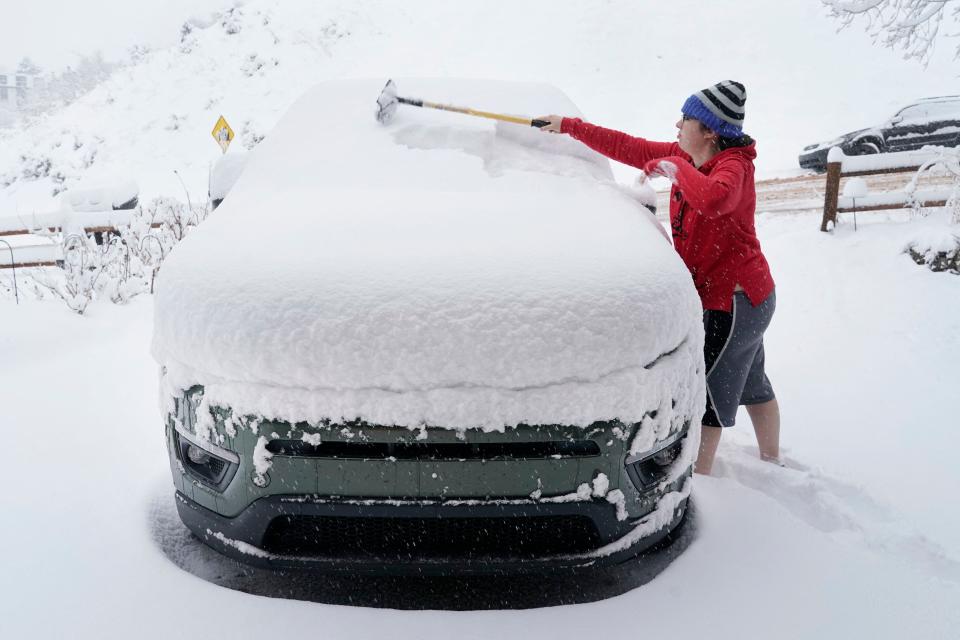USA TODAY and Yahoo may earn commission from links in this article. Pricing and availability subject to change.
6 things you shouldn't leave in your car in freezing temperatures
Do you keep your sunglasses in the car? You might want to take them out until it warms up.
Just like with extreme heat, you shouldn't leave certain things in your car during subzero weather.
Freezing temperatures from a harsh arctic blast are expected to affect nearly 300 million Americans across most of the continental U.S. in the coming days, according to the National Weather Service.
Here are six items you shouldn't leave in your car when it's freezing outside:
Where will it snow in the US? See where the polar vortex is set to make an icy impact
Aerosol cans
Extreme temperatures can cause aerosol cans to "become unstable" and potentially break or explode, according to Capital One Auto Navigator.
Canned beverages and foods
Canned goods that freeze can present health risks, according to the U.S. Department of Agriculture. USDA says cans can swell if the food inside expands when its frozen — or because of a bacteria — so you should discard them.
Cans that are not swollen but have thawed out are also unsafe and should be discarded, per USDA.
For more information on canned food safety, click here.
Beverages can also expand inside their containers when frozen, leading to cracks or breakage.

Eggs
Eggs should not be frozen in their shells, USDA says.
"If an egg accidentally freezes and the shell cracked during freezing, discard the egg," the agency said on its website. "Keep any uncracked eggs frozen until needed; then thaw in the refrigerator."
Electronics
Leaving electronics, like your cell phone or tablet, in a freezing car can impact how they function, USA TODAY reported.
Some manufacturers − like Apple and Samsung − recommend you don't expose products to extreme temperatures at all, since most devices work best when used at temperatures above 32 degrees.
More: How to keep your tech protected from frigid temperatures: Video tutorial
Medications
Medicine is another item that should not be frozen.
When medications do freeze accidentally, there's no visual indicators that they're still safe to take, according to Massachusetts-based Baystate Health.
"So even if you thaw it out, it’s best to get it replaced than to take the risk that it's ineffective or even dangerous," the health system said on its website.
In general, any liquid medication in a "suspended state" will likely be negatively affected if its frozen, according to AARP.
AARP recommends reaching out to your provider or pharmacist if you have questions on your medication's storage.
Loved ones
This should be obvious. But it's worth noting that children and elderly people can be more susceptible to hypothermia at cold temperatures, with symptoms such as shivering, confusion and exhaustion, according to the Centers for Disease Control and Prevention. So even limited amounts of time in an unheated vehicle could be dangerous. The same goes for pets.
Robert Allen and Cody Godwin contributed to this report.
This article originally appeared on Milwaukee Journal Sentinel: Don't leave these 6 things in a freezing car


